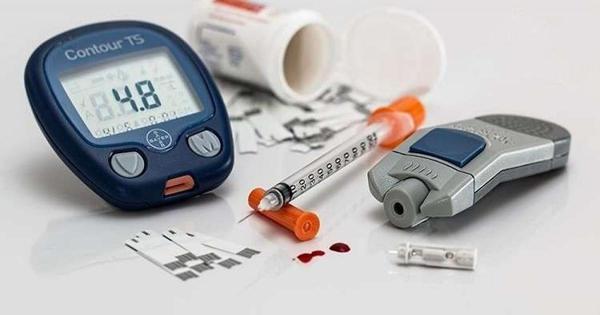Diabetes is one of the diseases that has affected a large number of people in recent years, so if you have its precursors, you should take into account some healthy habits.
According to the World Health Organization, diabetes is “a chronic disease that occurs when the pancreas is unable to produce sufficient insulin, or when the body is unable to effectively use the insulin it produces.”
Insulin is a hormone that controls the level of sugar in the blood, and hyperglycemia, which is also known as high blood sugar level, is one of the common results of a defect in controlling the level of sugar in the blood, and over time leads to serious damage to many body systems, especially Nerves and blood vessels.
In 2014, the proportion of people with diabetes was estimated at 8.5% of all adults in the age group of 18 years and over.
In 2019, diabetes was the direct cause of 1.6 million deaths, and 48% of all deaths occurred before the age of 70 years.
Between 2000 and 2016, premature deaths (before the age of 70 years) from diabetes increased by 5%.
If you find out that you have prediabetes, it does not mean that you will develop type 2 diabetes especially if you follow a treatment plan and make healthy lifestyle choices.
For some people with prediabetes, moderate lifestyle changes can return blood sugar levels to a normal range, which may help prevent or delay the onset of type 2 diabetes.
Dietitians who specialize in prediabetes tell you the healthy habits you should follow daily, according to the eatingwell website:
1- A plate of fruits and vegetables
These foods are packed with nutrients, fiber and low in calories. The antioxidants and phytochemicals present in them play a role in improving insulin resistance, which helps to better control blood sugar.
So it's a good idea to fill half or all of a plate with fruits and vegetables at each meal to make sure you meet your needs, and this can also be a snack.
2- Stress management
“Chronic stress can harm health and well-being by suppressing your immunity, leaving you vulnerable to many types of diseases,” explains Lauren Harris-Pincus, author of The Everything Easy Pre-Diabetes Cookbook.
"Plus, stress hormones like cortisol can contribute to weight gain and high blood sugar," she explains.
She suggests adding stretching, meditation or deep breathing to your daily routine, adding: "Make time for self-care by choosing a relaxing activity that you enjoy, preferably away from screens such as knitting, drawing, word puzzles, listening to music or reading a good book."

3- Get some sleep
Did you know that not getting enough sleep makes you not only cranky, but also less likely to stick to healthy eating goals?
Plus, not getting enough sleep messes with your body's response to insulin
“Short sleep alters levels of growth hormone and cortisol, which makes us more resistant to insulin, and even one night of poor sleep can make you more insulin resistant the next,” Weisenberger says.
According to the Centers for Disease Control and Prevention (CDC), adults should aim for 7 hours of sleep each night.
4- Avoid drinking alcohol
Lorena Drago, a certified specialist in diabetes care and education, explains that binge drinking is defined as "4 or more drinks for women and 5 or more for men in about two hours that may increase the risk of type 2 diabetes."
Excessive alcohol consumption can lead to pancreatitis and an inability to secrete insulin due to excessive alcohol consumption.
So if you choose to drink alcohol, the recommendation is no more than one drink a day for a woman and two drinks a day for a man.
5- Move constantly
"Prolonged sitting, including spending long hours watching TV or in front of a computer, may increase the risk of developing type 2 diabetes," Drago explains.
Also, lack of exercise is a major contributor to chronic disease, as physical activity enhances insulin sensitivity, increases how muscles use blood glucose (sugar), and improves insulin resistance, according to the specialist.
She recommends: "Do at least 30 minutes of physical activity 5 days a week (almost every day), and to help you stick to it choose a type of movement you really enjoy rather than trying to force yourself to do something you don't like."
Sports activities are varied, it can be yoga, dancing, weightlifting, swimming, cycling, running or more.
6- Follow a vegetarian diet
“Powerful, plant-based foods like nuts, seeds, fruits, vegetables, whole grains, beans and legumes contain disease-fighting nutrients,” says Toby Smithson, MD, diabetes expert and founder of DiabetesEveryDay.com.
"These foods can reduce your risk of heart disease, lower your cholesterol, help manage blood sugar, and improve mood," he adds.
Also, a plant-based diet is effective in reducing the risk of type 2 diabetes, as it is high in fiber, low in saturated fat, and improves insulin sensitivity.
"Research shows that this type of eating pattern is associated with a 30% lower risk of developing diabetes," Smithson concluded.